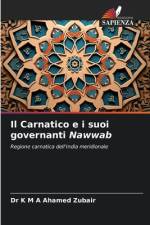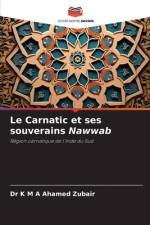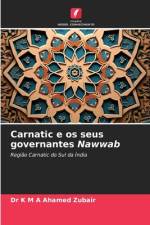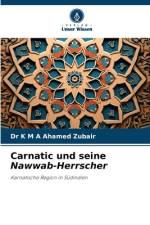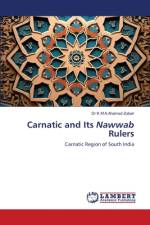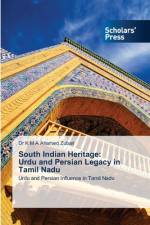von K M A Ahamed Zubair
42,00 €
The literary landscape across various regions in India, particularly in areas like Vaniyambadi, Virinjipuram, Walajabad, Thiruvannamalai, and others, has been richly adorned by the contributions of numerous scholars, poets, and writers. Their diverse works, encompassing languages like Urdu, Arabic, Persian, and Tamil, have not only preserved cultural heritage but also enriched it with religious, philosophical, and literary depth. This compilation aims to highlight the impactful contributions of these remarkable personalities, shedding light on their works, legacies, and significant literary feats.The exploration into the literary tapestry of various Indian regions brings to the forefront a vibrant mosaic of poets, scholars, and writers. Among these luminaries, individuals like Dr. Azeez Tamannai, Badshah, Gundu Khaja Abdul Khader Shakir, and others stand as pillars, leaving indelible marks through their poetic, scholarly, and religious contributions. Spanning across languages, these figures have wielded Urdu, Persian, Arabic, Tamil, and even Sanskrit and Hindi words, infusing their compositions with an eclectic blend of linguistic richness.


